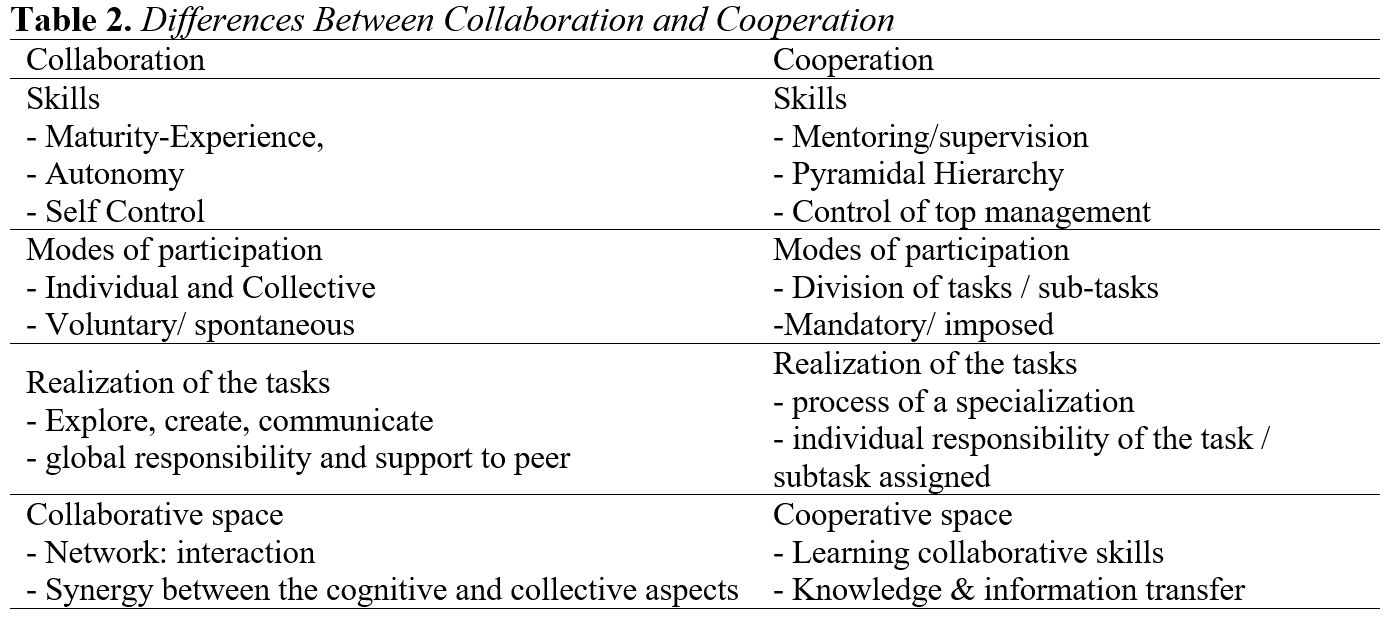Information

Two heads are often better than one, especially in academic research. Collaboration can lead to richer data sets, varied perspectives, and a more thorough analysis of findings (Katz & Martin, 1997). For this reason, it is considered valuable for researchers to construct and continue their studies with a collaborative approach. Peer reviews are an invaluable part of this collaborative spirit. They offer constructive criticism that could significantly elevate the quality of the paper (Lee et al., 2013). These criticisms will guide researchers both in their current studies and in their future studies. In this way, researchers will be able to include the experiences of different researchers in their studies. According to literature, there are two types of team working styles, these are collaboration and cooperation. In a cooperative work, the distribution of tasks is done according to the principle of individual specialization in tasks or subtasks. Here, tasks are distributed at the beginning of the work and each individual performs the part that is his/her responsibility and at the end of the process all parts come together. Whereas, in a collaborative work, each carries out all the work together from the beginning to the end of the work. Beau et.al. (2010) explain collaborative and cooperative working as:

Table 2 explains the differences between cooperating and collaborating. Collaboration is based on skills such as maturity, experience, autonomy and self-control, while cooperating is based on skills such as mentoring/supervision, pyramidal hierarchy and control of top management. Modes of participation are individual and collective, voluntary/spontaneous for collaboration, where division of tasks and subtasks are mandatory/mandatory for cooperation, and the accomplishment of tasks is about exploring, creating, communicating, and providing global responsibility and peer support in collaboration, while the process of cooperating is a process of specialization, and it involves responsibility for the individual task. The domain of collaboration involves the synergy between interaction, cognitive, and collective aspects, while the domain of cooperating involves the learning of collaborative skills and the transfer of knowledge and information. In order to provide good and effective teamwork environment; Before you start your teamwork choose the way you work together: collaborative, or cooperative. If you choose to collaborate, be sure that everyone joins in all phases of the process because in collaboration everyone should take responsibility in all process, and they can contribute all phases of the study with their own working styles and creativity. If you choose to cooperate, be sure that tasks distributed from the beginning, and everyone take their own parts’ responsibility. In this kind of working to avoid complexity and confusion hierarchical structure should be created. By this way unifying in working style and univocality in written product can be provided.